I will be teaching sedation practices, airway skills, and Pediatric Advanced Life Support (PALS) to pediatric physicians and residents at the Mongolian National University of Medical Sciences using an innovative, simulation-based curriculum. Although this is not an officially sponsored American Heart Association (AHA) course due to funding limitations, we will be using AHA PALS principles, algorithms, and teaching methods to deliver high-quality, evidence-based resuscitation education. This course is especially significant as there are currently no certified AHA PALS programs in Mongolia, making this a unique and much-needed educational opportunity for local learners.
The course will incorporate both high- and low-fidelity simulation trainers to enhance hands-on skills and reinforce critical thinking during pediatric resuscitations. Sessions will include structured debriefing to help learners reflect on their performance and solidify key take-home points. Topics will cover recognition of respiratory failure, shock, and cardiac arrest, as well as team dynamics and effective communication in emergency situations.
To ensure that learners have access to reliable reference materials, our team has raised $1,000 in external funds to purchase AHA-certified PALS textbooks, posters, and additional learning aids. These resources will be distributed to participants and used to support both the didactic and simulation components of the course.
By teaching evidence-based resuscitation techniques in a structured, immersive environment, this course will help equip pediatric physicians with the skills and knowledge needed to respond confidently and effectively to critically ill children. Ultimately, this training will make a meaningful difference by improving outcomes and saving the lives of children who present with cardiopulmonary compromise.
This project will directly benefit pediatric physicians, pediatric residents, and emergency medicine providers at the Mongolian National University of Medical Sciences (MNUMS), as well as indirectly benefit the pediatric patients they care for across Mongolia. This is a critical population to target because Mongolia currently lacks access to formal Pediatric Advanced Life Support (PALS) training. There are no certified AHA PALS programs in the country, and many providers have not received structured training in evidence-based pediatric resuscitation techniques.
Pediatric providers in Mongolia face unique challenges, including limited resources, long distances between healthcare facilities, and high rates of pediatric morbidity and mortality in rural and underserved regions. Many pediatric emergencies—such as respiratory failure, shock, and cardiac arrest—require immediate and well-coordinated interventions to prevent poor outcomes. Without appropriate training in systematic assessment and team-based response, providers may lack the skills and confidence to respond effectively to life-threatening situations.
By providing simulation-based PALS education tailored to local needs, this program will strengthen the ability of Mongolian pediatric providers to recognize and manage critically ill children. The course will also promote a culture of teamwork, communication, and preparedness, which are essential for improving outcomes in high-stress situations.
Ultimately, the greatest beneficiaries of this project will be the children of Mongolia. Equipping providers with life-saving knowledge and skills will enhance the quality of emergency care and help reduce preventable pediatric deaths due to cardiopulmonary compromise. This training fills a significant gap and lays the groundwork for ongoing resuscitation education in the country.
The expected impact of this project is both immediate and sustainable. In the short term, pediatric physicians and trainees at the Mongolian National University of Medical Sciences will gain essential skills in recognizing and managing pediatric cardiopulmonary emergencies using evidence-based Pediatric Advanced Life Support (PALS) principles. Through simulation-based training, learners will improve their clinical decision-making, teamwork, and confidence in high-stakes situations. This will directly enhance the quality of pediatric emergency care and has the potential to reduce preventable deaths among children presenting with respiratory failure, shock, or cardiac arrest.
Longer term, the goal is to foster a core group of local champions in pediatric resuscitation who can carry the work forward after my departure. I will be providing teaching guides, debriefing tools, and structured curricula that they can continue to use and adapt locally. Additionally, the AHA-certified textbooks, posters, and learning materials purchased with externally raised funds will remain on-site as a permanent resource for ongoing practice, review, and peer education.
This foundational course may serve as a springboard for developing a sustainable, locally-led pediatric resuscitation education program in Mongolia. By investing in the professional development of local providers and leaving behind the tools and knowledge needed to continue the training, the project aims to build long-term capacity. The learners will not only use their skills in clinical care but also help train future generations of pediatricians, creating a ripple effect that can improve child health outcomes across the region.
During my visit to the Mongolian National University of Medical Sciences (MNUMS) last year, I delivered an introductory pediatric resuscitation course using low-fidelity task trainers. The session was very well received, and the faculty subsequently requested a formal PALS course.






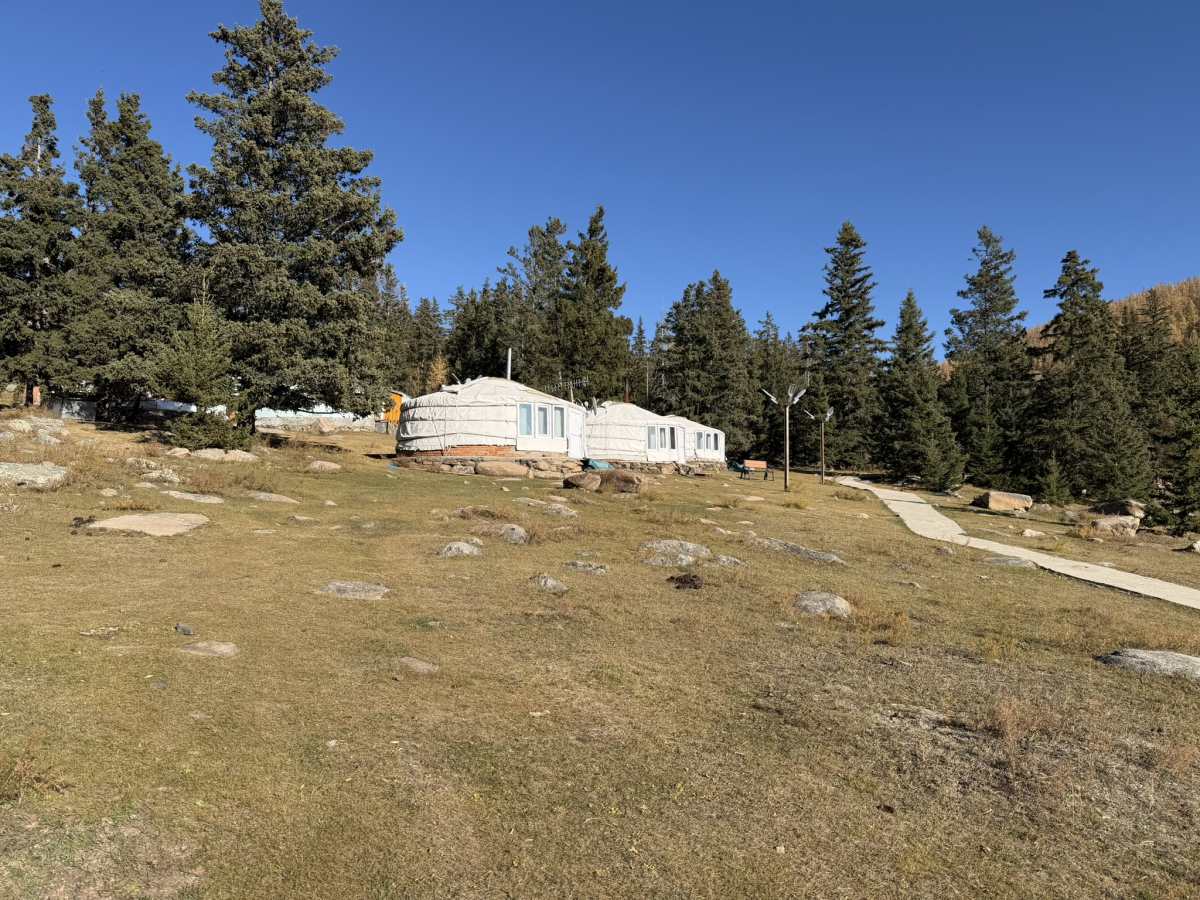


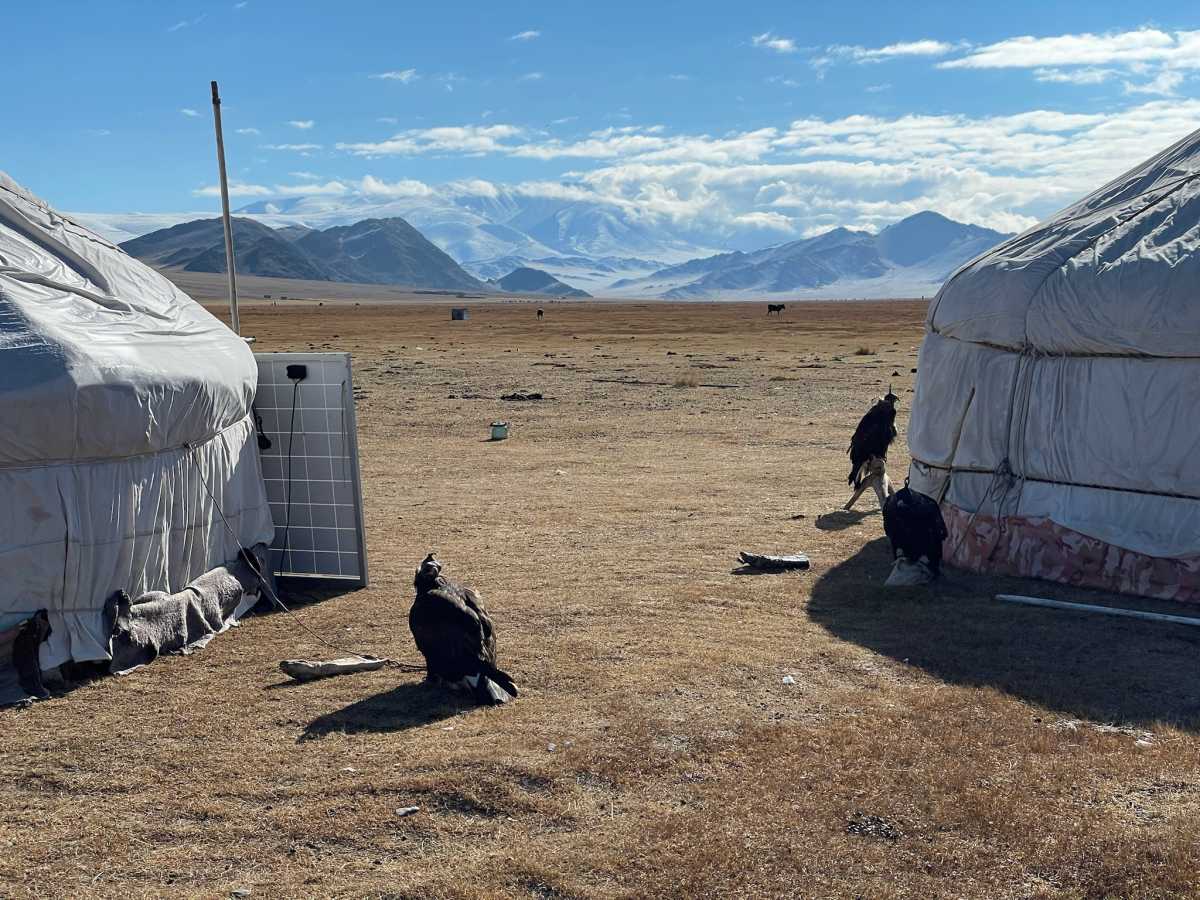




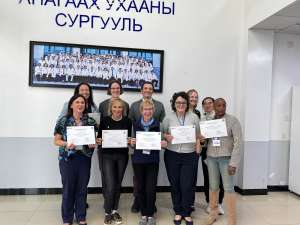
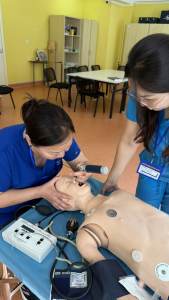
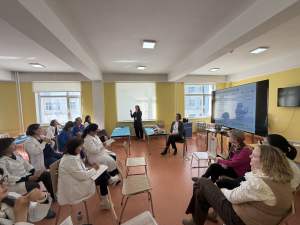



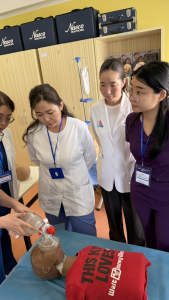


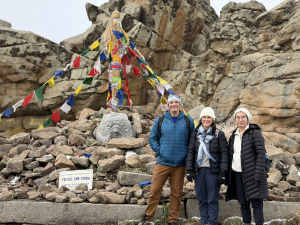
We traveled to Ulaanbaatar, Mongolia to collaborate with the Mongolian National University Medical School (MNUMS). Our goal: to teach their pediatric and critical care staff and trainees concepts in pediatric advanced life support as well as provide a foundation of how to construct a low fidelity simulation education curriculum to help reinforce these concepts.
Roughly 50% of the Mongolian population lives within or the capital city, the remainder are spread throughout the vast area of rural provinces. Medical care in the rural provinces can be hard to come by and even in the capital response time and resources for medical emergencies is limited. Despite these limitations, our Mongolian partners and learners were extremely enthusiastic and focused on improving and learning what they can to better care for children within Mongolia. We had learners who traveled multiple days attend and learn with us so that they could then take what they learned back to their respective areas to teach others.
By the end of our time, it was clear that our educational material was readily adopted and put into action using the available resources. MNUMS faculty and staff committed to adapting the highest possible for pediatric care in Mongolia within their limited resources. This educational contribution will hopefully empower their staff, leading to improved healthcare and better outcomes for children in the future.